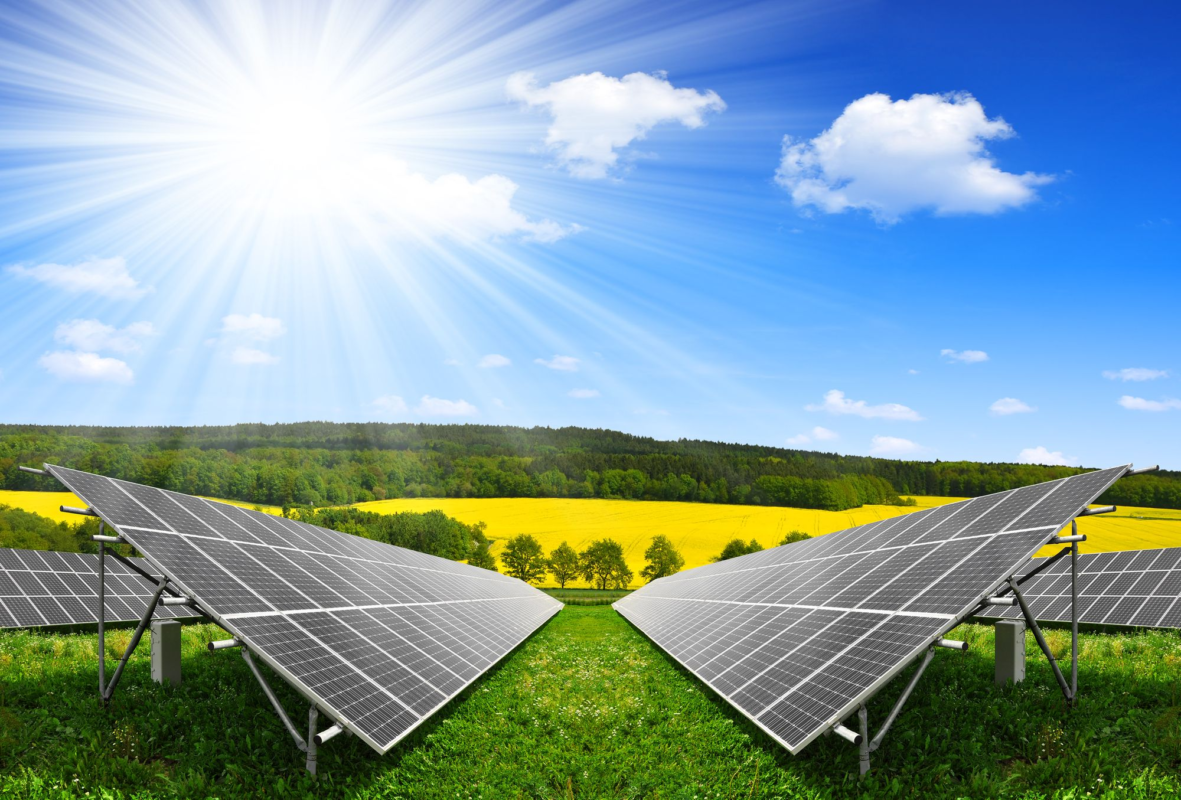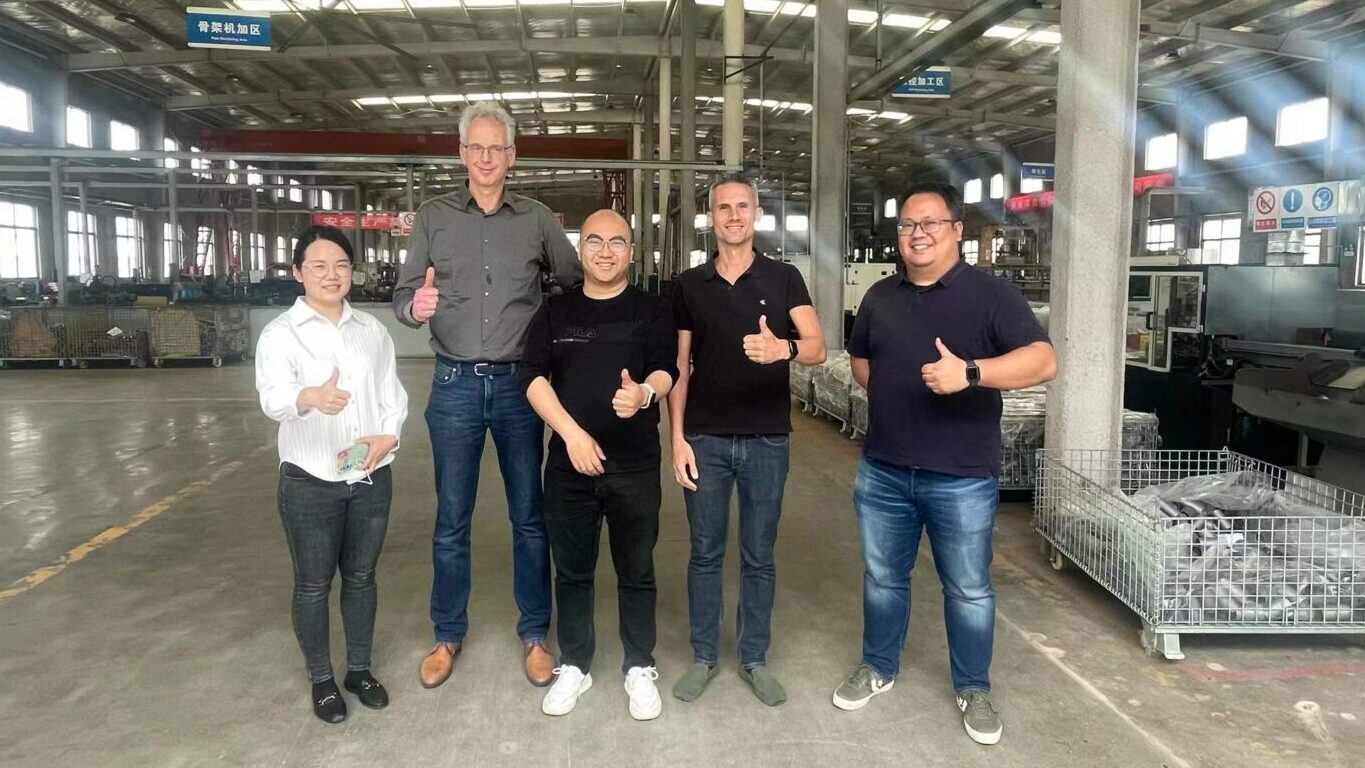As 2024 approaches, people are paying more and more attention to solar technology and products. So what is the solar panel efficiency? Read on to learn more about solar panel efficiency and how to choose the most efficient ones.

What is Solar Panel Efficiency?
Solar panel efficiency is a measure of how much solar energy a solar panel can convert into usable electricity. Highly efficient solar panels produce more usable electricity while receiving the same amount of sunlight.
The efficiency of a solar panel is measured by capturing the electric current produced when sunlight interacts with the silicon or thin-film cells within the solar panel.
Main Factors that Affect Solar Panel Efficiency
Panel Design
Solar panel design mainly reduces energy loss through reasonable battery layout and contact methods.
Solar panels can lose efficiency at high temperatures, so the color of the panels also plays a role. Generally speaking, blue or green panels will be more efficient than black panels.
In addition, solar tracking systems can also improve solar panel efficiency by adjusting the position of solar panels as the sun moves, maximizing the panel’s exposure time.
Solar Panel Inclination
The tilt angle of the solar panel directly affects the amount of sunlight received by the solar panel. Therefore, the choice of the tilt angle of the solar panel is very important. The optimal tilt angle depends on your location’s latitude and climate conditions. In fact, most cases do not allow adjusting the panel slope every season, but you can try various angle installations to adapt to different seasons and roof slopes.
Not only that, the appropriate tilt angle can help reduce the accumulation of pollutants on the surface of solar panels, improve the self-cleaning effect of the panels, and also reduce the shadows caused by buildings or other obstacles on the solar panels, preventing shadows from affecting efficiency.
Solar Panel Materials
Different materials have different electrical properties, optical properties and stability, so the material selection of a solar panel directly affects its efficiency. There are three main types of solar panels: monocrystalline silicon, polycrystalline silicon, and thin-film solar cells.
Monocrystalline silicon: Monocrystalline silicon has high photoelectric conversion efficiency, and the integrity of its lattice structure makes it more responsive to light.
Polycrystalline silicon: Polycrystalline silicon is cheaper to prepare than monocrystalline silicon, and its poor crystal quality results in lower efficiency, but it can still be an economical option.
Thin-film solar cells: Lower efficiency, but they are lighter and more suitable for transportation.
Temperature
According to manufacturing standards, a temperature of 25°C or 77°F is the optimal temperature for photovoltaic solar panels. The semiconductors in solar panels are sensitive to high temperatures. As the temperature rises, the photoelectric conversion efficiency of solar panels decreases. In some systems, solar panels reduce temperature through heat dissipation, helping to maintain panel performance.

Most Efficient Solar Panels of 2024
| MANUFACTURER | MODEL | MAX EFFICIENCY RATING |
| SunPower | M Series 440-watt | 22.8% |
| Canadian Solar | HiHero 445-watt | 22.8% |
| REC | Alpha Pure RX 475-watt | 22.6% |
| Qcells | Q.TRON BLK M-G2+ 440-watt | 22.5% |
| Panasonic Evervolt | H/HK 410-watt | 22.2% |
| Silfab | Prime NTC 430-watt | 22.2% |
| Jinko Solar | Tiger N-Type 66TR 420-watt | 22% |
Does Solar Panel Efficiency Matter?
Under the same sunlight conditions, high-efficiency solar panels can produce more electricity. This is particularly critical for applications where energy production needs to be maximized, such as rooftop solar systems or large-scale solar farms.
In limited space, high-efficiency solar panels can also generate more power and improve space utilization.
Although high-efficiency solar panels cost more, in the long run, they cost less per unit of electricity generated and are more economical.
For systems that rely on renewable energy, such as microgrids or off-grid systems, efficient solar panels can better meet energy needs and reduce reliance on other energy sources. At the same time, efficient solar panels require less material for the same energy yield and therefore have a smaller environmental impact.
Overall, it makes more sense to choose a more efficient solar panel than a less efficient one. With electricity prices rising rapidly in 2022, for solar system owners, the sooner you go solar, the sooner you can start saving money on your energy bill!
How We Chose and Ranked the Most Efficient Solar Panels?
First you need to clarify your project goals and priorities. Do you need maximum energy output, high utilization of limited space or a balance between efficiency and cost?
Next you need to consider the reputation of the solar panel manufacturer, which you can judge by reading customer reviews and feedback on different solar panels. Having a good reputation usually means that a company has invested in the quality and efficiency of its products.
Researching and comparing the efficiency ratings of different solar panels is also an important step. Efficiency is usually expressed as a percentage and represents the amount of sunlight that can be converted into electricity. Solar panel data sheets published by solar panel manufacturers generally detail their dimensions, performance specifications, and internal chemical composition.
Finally, you’ll want to check the manufacturer’s warranty and whether the solar panels have relevant certifications and meet industry standards. A longer warranty demonstrates a manufacturer’s confidence in the durability and performance of its panels, while certifications such as IEC, UL and TÜV are direct evidence that a product meets safety and performance standards.
Conclusion
I believe that through this article, you have learned about solar panel efficiency and how to choose the most efficient solar panel. Efficient solar panels not only increase energy production but also help achieve sustainability goals and lead to financial savings in the long term.
Finally, if you are interested in adopting solar solutions and are looking for efficient and reliable solar panels, GYCX Solar is the right choice for you. GYCX Solar is known for its excellent technological innovation, reliable product quality and excellent customer service. Contact us today and let solar energy power your life!

FAQ
Are more efficient solar panels more expensive?
Yes, generally speaking, more efficient solar panels tend to be more expensive to make than less efficient ones, and therefore will be more expensive. Although the upfront cost is high, the most important thing to consider is the overall benefit of solar panels. High-efficiency panels can generate more usable power under limited conditions and space, thereby providing solar system owners with a higher return on investment.
What does it mean if a solar panel has an efficiency of 20%?
This means the panel can convert 20% of the sunlight it receives into electricity. 20% of currently available residential solar panels are prioritized. The most efficient solar panels on the market are over 22% efficient.
Do solar panels lose efficiency over time?
Yes, solar panels can lose some efficiency over time, a phenomenon commonly known as solar panel degradation. This is usually a slow process, with annual decay rates typically between 0.5% and 2%. Most solar panels maintain high efficiency levels after 25 years of use, so solar cells remain a reliable , long-term sustainable energy solutions.
Can solar panels be 100% efficient?
Theoretically, it is impossible for solar panels to achieve 100% actual efficiency. In the process of energy conversion, some energy is always lost. The actual efficiency of current commercial solar panels is typically between 15% and 22%, which means that these panels can convert 15% to 22% of the sunlight they receive into electricity. Although current solar cell technology has made great progress in improving efficiency, it is impossible to achieve 100% efficiency.
